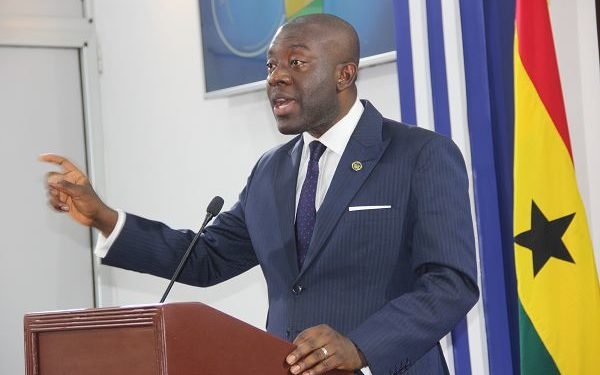The government has pledged not to backtrack on the economic gains made so far, in spite of the general election in December this year.
The pledge follows the upgrade of the country’s economic outlook from stable to positive by Moody’s rating agency, an international credit rating agency.
Moody’s affirmed Ghana’s long-term issuer and senior unsecured bond
ratings at B3 and changed the outlook from stable to positive.
It
has also affirmed the rating of the bond enhanced by a partial guarantee
from the International Development Association (IDA, Aaa stable) at B1.
Committed
Reacting to the new rating at the first ministerial media briefing for this year in Accra, the Minister of Information, Mr Kojo Oppong Nkrumah, said the government welcomed the upgrade and was committed to enhancing the measures that were yielding such results.
To help improve on the ratings, he said, the government would ensure that the key pillars that had contributed to the improved outlook, such as restored macroeconomic stability, rebounded growth, consolidated fiscal position, improved debt management and strong institutional reforms, were deliberately enhanced.
“The government welcomes the change in the nation’s economic outlook from stable to positive by the Moody’s ratings agency.
The Economic Management Team (EMT) is very pleased with this outlook change and commits to do more,” he said.
Healthy news
Mr Oppong Nkrumah described the change in the economic outlook as a very important development, especially in the context of Ghana’s ratings history over the years.
He explained that the decision to assign a positive outlook to the economy reflected Moody’s rising confidence in Ghana’s institutions and policy settings.
That, he said, would foster improved macroeconomic and fiscal stability over the medium term, in part as a consequence of the reforms implemented under the recent International Monetary Fund (IMF) reform programme.
The minister said the reforms that had been implemented since the government took office in 2017 were beginning to yield positive results.
The results, he stated, were, for instance, evident in the return to primary fiscal surpluses, measures to smoothen the debt maturity profile and increasingly sustainable growth prospects.
Mr Oppong Nkrumah noted that the Head of the EMT, Vice-President Mahamudu Bawumia, on receiving the news, said contrary to attempts by some people to run down the country’s recent economic gains, the upgrade provided further evidence that global economic watchers, who were examining Ghana’s economic data, saw clearly that its economy was back on track.
The Vice-President, according to Mr Oppong Nkrumah, noted that the future looked even better on the economic management strategy that had been adopted by the government.
“Things can only continue to get better,” he said.
The rating agency issued a press release at the weekend, revising the country’s outlook from stable to positive, while affirming its B3 rating, signifying optimism about the direction of the economy.
Positive outlook
A positive outlook also lowers the risk of long-term debts that Ghana may issue over the medium-term, such as the Eurobond to be issued next month.
Moody’s indicated that the measures the government had instituted in the last couple of years to clean the financial sector, as well as stable power generation, pointed to active, moderately effective policy-making and supported rising confidence in policymakers’ ability to sustain economic and financial stability.
Developments
The rating agency said Ghana had recently seen a number of positive developments in key credit matrices which partly reflected the institutional and fiscal reforms implemented under the four-year IMF programme that was completed in April 2019.
“Key fiscal reforms include the Public Financial Management Act (2016) which improves fiscal governance and the Fiscal Responsibility Law (2018) requiring adherence to an overall fiscal deficit ceiling of five percent of GDP and a primary surplus.
“2019 saw a cash deficit of 4.8 percent of GDP and a primary surplus of 0.9 percent of GDP — weaker than the initial targets but within overall limits.
Moody’s expects a similar outcome this year and a renewed shift to fiscal consolidation following the elections,” the agency stated.
Source: Graphic Online





